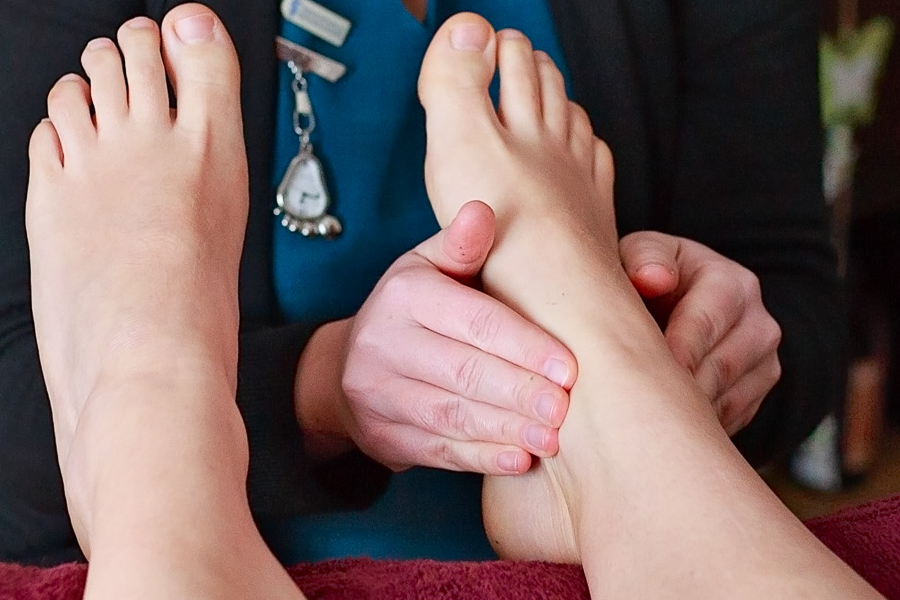As a Clinical Reflexologist the largest percentage of my clients who come to see me are those that need help managing symptoms of IBS.
I have clients of all different ages who suffer with their digestive system, ranging from children and young adults, all the way through to the older generation.
As part of your clinical consultation with me we will discuss and identify area's in your lifestyle and diet that may be 'triggers' for the symptoms of IBS and look at changing and improving them to bring about better health and wellbeing.
Stress is a very common factor with ailments of the digestive system and in particular with IBS. Reflexology will help to relax you, working on your nervous system, reducing the amount of 'stress hormones' produced and circulating around your body.
It may also help to improve physical symptoms by finding the imbalance and working at bringing your body back into its natural balance - we call this homeostasis - so that your body can once again work at its optimum.
Do you think that you may be suffering with IBS? Here is some information for you, but remember to always seek the advice of your GP first if you have any concerns.
IBS:
- Affects 1 in 5 people
- Usually develops between 20 to 30 years of age
- Around twice as many women as men are affected.
What is IBS?
A common long-term condition of the digestive system that affects the bowel. It can cause bouts of bloating, stomach cramps, diarrhoea/constipation. The symptoms vary and affect some people more severely than others. Periods of IBS can last from a few days to a few months at a time. Some of the symptoms may ease after going to the toilet and opening the bowels.
The condition can be painful and debilitating, having a negative impact on quality of life and your emotional state. Feelings of depression and anxiety may be experienced.
CAUSES
Although the exact cause is unknown, most experts think that it is related to increased sensitivity of the gut and problems digesting food.
STRESS may also play a part.
TREATMENT
There is no cure but symptoms can be managed by changes to diet and lifestyle.
- Identify and avoid food and drink that trigger the symptoms.
- Alter the amount of fibre in your diet.
- Exercise regularly
- Reduce stress levels
Information taken from www.nhs.co.uk)

